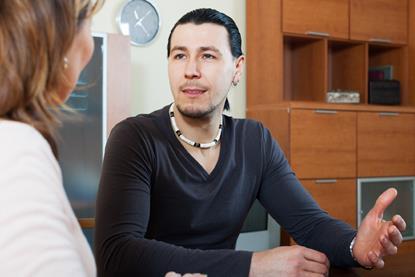- Home
- Your health and wellbeing
-
Emotional support
- Back to parent navigation item
- Emotional support
- Happiness test
- Resilience
- How to be a mental health ally
- Ten days to feel better
- Family wellbeing
- Summer wellbeing
- Ukraine
- Work-life balance
- Winter wellness
- Understanding mental health
- Counselling
- Self-care
- Managing stress
- Domestic abuse
- Personal safety
- Loneliness
- Overcoming low self-esteem
- Loss and bereavement
- Managing anger
- Understanding eating disorders
- Understanding self-harm
- Parenting
- Relationship breakdowns
- Suicide awareness
- Dealing with a critical incident
- Coping with bullying
- Children and young people
- LGBTQIA+
- World events
-
Physical wellbeing
- Back to parent navigation item
- Physical wellbeing
- Sleeping well
- Summer wellbeing
- Work-life balance
- How to kick-start a healthier autumn
- Winter wellness
- Benefits of healthy eating
- Benefits of physical activity
- Coping with an illness
- How to make healthy life choices
- Homelessness
- Coping with menopause
- Women's health
- Men's health
- Career development
- Financial health
- For managers
Suicide aware in retail
Suicide remains a topic many of us feel uncomfortable talking about but it is more common than you might think. Around the world, someone takes their own life every 40 seconds – that’s nearly one million deaths by suicide every year. Suicide is preventable. This content has been created to increase your understanding of suicide and help you explore ways that you can respond to someone who feels that they no longer want to live.
It can be upsetting and potentially triggering to read about suicide. In the event that you’re feeling vulnerable at the moment, you might want to consider reading this content at a time when you don’t feel distressed.
The information and self-help support provided is not a substitute for seeking medical assistance and advice if required. If you are having thoughts of suicide, please seek professional assistance urgently. You can contact the emergency services on 999 if you feel unable to keep yourself safe, and your local A&E will also be able to provide you with help.
Alternatively, the Samaritans are also available 24 hours a day, seven days a week on 116 123.
24hr phone helpline
If you are affected by any of this content, please call our free and confidential helpline on
Suicide in the UK and Republic of Ireland
Exclusive content from the Retail Trust
Unlike people, suicide doesn’t discriminate. Suicide affects people of all ages, socioeconomic backgrounds, professions, religious backgrounds, and ethnicities. It’s estimated that one in five of us have considered ending our own lives at some point highlighting that suicidal feelings and suicide are more common than many people think.
Why people die by suicide
Exclusive content from the Retail Trust
There are many reasons why people consider ending their life – as many reasons in fact as there are people. Suicide is not straightforward and is often the result of an individual experiencing many difficult things happening at once. (2/11)
The truth about suicide: dispelling the myths
Exclusive content from the Retail Trust
Despite the fact that nearly one million people around the world take their own lives every year, suicide remains very stigmatised and misunderstood. In this article, you’ll discover the truths behind the myths. (3/11)
Why language is important in suicide prevention
Exclusive content from the Retail Trust
Considering the language we use to describe suicide is really important when supporting someone who may be thinking about taking their life. Seemingly innocuous words have the power to hurt despite that being the last thing we want to do. (4/11)
Recognising the signs that someone may be suicidal
Exclusive content from the Retail Trust
it’s not uncommon for people to try and tell a friend, family member or colleague about their intentions in advance. Recognising how someone might express their feelings is an important part of knowing how to respond. (5/11)
Supporting someone who is feeling suicidal
Exclusive content from the Retail Trust
Kindness isn’t rocket science, it’s rocket fuel. Compassion and kindness go a long way in helping someone to make the decision to stay alive and we all have it in us to make a real difference. Here are some ways that you can help someone who feels that they’ve run out of options. (6/11)
Common questions about suicide in the retail sector
Exclusive content from the Retail Trust
Knowing what to do in certain situations can be difficult, especially if you’ve never encountered them before. This article addresses some of the more common scenarios involving colleagues who are feeling suicidal and offers sound advice on what to do should you encounter them. (7/11)
How are people supported by suicide-prevention professionals?
Exclusive content from the Retail Trust
It can be distressing not to know how someone you’ve supported will be helped once they engage with healthcare professionals who become responsible for their care, but it’s important to recognise that these specialists are best placed to provide a safe space to someone who is suicidal. This article looks at how healthcare professionals support people in crisis. (8/11)
Suicide prevention services in the UK and ROI
Exclusive content from the Retail Trust
Knowing where to access help is a vital part of supporting someone who is feeling suicidal. Here is an overview of national orgainsations who are there to help. (9/11)
Self-care – things you can do to stay well when supporting others
Exclusive content from the Retail Trust
Supporting others can be emotionally demanding, especially if you’re not feeling in a good place yourself. It’s really important to put your own wellbeing first and look after yourself on a daily basis, especially if you’re helping someone who is feeling vulnerable. (10/11)
Suicide awareness: a story of hope
Exclusive content from the Retail Trust
This extract from ‘The Female Mind: A User’s Guide’ explores the role of hope in helping someone to make the decision to live. Hope cannot be underestimated, and it’s easier to inspire than you might think. (11/11)
Suicide prevention conversation – Zara and Rafiq
Exclusive content from the Retail Trust
Knowing what to say to someone who is suicidal can be difficult but we’ve made it easier with this short video.
Suicide prevention conversation – Mark and Simone
Exclusive content from the Retail Trust
Knowing what to say to someone who is suicidal can be difficult but we’ve made it easier with this short video.
Support in the workplace after a suicide
Exclusive content from the Retail Trust
The suicide of a colleague always has a profound emotional effect in the workplace. Even if you didn’t know the individual well, you may have unanswered questions and feel very vulnerable. It’s important therefore that the employers are able to respond to the needs of all colleagues regardless of their relationship with the person who has died.
Create your personalised toolkit
Personalise your experience by telling us what interests you. Simply select from the list of subjects available.
Change your mind? You can easily update your preferences at any time. Your information is kept safe and confidential at all times.
Here are some of the subjects we cover:
- Managing stress
- Giving up smoking
- Core skills to help you at work
- CV and interview support
- Redundancy
- Loss and bereavement
- Privacy notice
- Terms and conditions
- Cookies policy
- Contact us
- © 2024 Retail Trust
Retail Trust is a registered charity in England and Wales (1090136) and in Scotland (SC039684). Company No 4254201 (Company limited by Guarantee) Registered England & Wales. Registered office: Retail Trust, The Form Rooms, Second Floor, 22 Tower Street, London, WC2H 9NS.
Site powered by Webvision Cloud





















